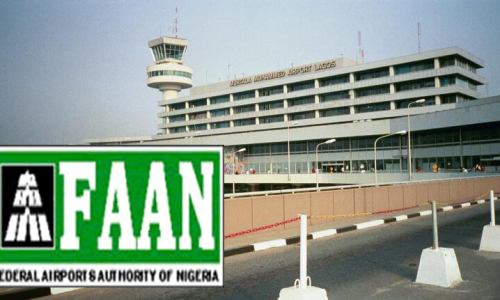It is unprofessional, misleading, and quite disheartening to watch the spokesperson for the Federal Airports Authority (FAAN), Yakubu Datti explain the dynamics of the Bristow helicopter’s fatal accident to the media. FAAN as a service provider should not, in anyway, engage in public discussion on aircraft incidents or accidents, except with express permission of the Nigerian Civil Aviation Authority (NCAA); or if any of its facilities is considered a contributing factor in the accident, and FAAN’s clarification on the issue is sought.
The former minister of aviation, Stella Oduah, virtually destroyed the professional sequence of handling issues relating to air transportation, when she authorised the expansion of Yakubu Datti’s function beyond publicity of the airport authority’s services. Datti fiercely defended Oduah’s maladministration that brought systemic decay of our aviation sector.
The Civil Aviation Act 2006 established aircraft accident reporting and investigation protocol. FAAN is not on the list of those authorised to partake in the reporting and public information process.
FAAN is a service organisation statutorily charged to manage all commercial airports in Nigeria and provide service to both passenger and airlines. It generates revenue from both aeronautical and non-aeronautical sources.
FAAN is entrusted with the following functions as depicted on its website:
- To develop, provide and maintain Airports, necessary services and facilities for safe, orderly, expeditious and economic operation of Air Transport.
- To provide adequate conditions under which passengers and goods may be carried by air and under which aircraft may be used for other gainful purposes and prohibiting the carriage by air goods of such classes as may be prescribed.
- To charge for services provided by the authority at airports.
- To provide accommodation and other facilities for the effective handling of passengers and freight.
- To develop and provide facilities for surface transportation within airport.
- To carry out at the airports (either by itself or by an agent or in partnership with any other person) economic activities that are relevant to airport.
- To carry out at the airports (either by itself, its agents or in partnership with any other person) such other commercial activities which are not relevant to air transport.
- To carry out at the airports (either by itself, its agents or in partnership with any other person) such other commercial activities which are not relevant to air transport.
- To provide adequate facilities and personnel for effective security at all airport.
Generally, to create conditions for the development in the most economic and efficient manner of air transport and the services connected with it.
The overwhelming power of the former minister beyond the scope of her office is gone. Accident Investigation Bureau (AIB) and the NCAA must be allowed to function properly on safety related issues, recommendations and oversight.
It is no secret that aircraft incidents and accidents create worldwide sensation with the public, especially when the media expose naïve probable cause of the event leading to an air crash. Air accidents make headline news and, as such, it is very important to allow professional aircraft accident investigators time to dig out the probable cause(s) before erroneous reporting by a non-professional agency like FAAN.
The Accident Investigation Bureau (AIB) is one of the six agencies under the Ministry of Aviation, charged with the responsibility to investigate aircraft accidents and incidents in Nigeria. As part of the Civil Aviation Act of 2006, AIB became an autonomous agency which reports directly to the President through the Minister of Aviation. Apart from its primary duty of investigation of aviation accidents, AIB also makes recommendations in case of major incidents or accidents that will help enhance safety and deter future recurrence of such incidents or accidents.
In 1974, the United States Congress reestablished the National Transportation Safety Board (NTSB) as a completely separate entity, outside the Department of Transportation (DOT), reasoning that “…No federal agency can properly perform such (investigatory) functions unless it is totally separate and independent from any other agency of the United States.” Because the DOT has broad operational and regulatory responsibilities that affect the safety, adequacy, and efficiency of the transportation system, and transportation accidents may suggest deficiencies in that system, the NTSB’s independence was deemed necessary for proper oversight. The NTSB, which has no authority to regulate, fund, or be directly involved in the operation of any mode of transportation, conducts investigations and makes recommendations from an objective viewpoint.
Since its inception, the NTSB has investigated more than 132,000 aviation accidents and thousands of surface transportation accidents. On call 24 hours a day, 365 days a year, NTSB investigators travel throughout the country and to every corner of the world to investigate significant accidents and develop factual records and safety recommendations with one aim—to ensure that such accidents never happen again. The NTSB’s Most Wanted List of Transportation Safety Improvements highlights safety-critical actions that DOT modal administrations, the USCG, and others need to take to help prevent accidents and save lives.
To date, the NTSB has issued over 13,000 safety recommendations to more than 2,500 recipients. Because the NTSB has no formal authority to regulate the transportation industry, our effectiveness depends on our reputation for conducting thorough, accurate, and independent investigations and for producing timely, well-considered recommendations to enhance transportation safety.
Just like Nigeria and the United States, other countries have an independent accident investigation bureau, whose responsibilities include accident investigation to establish the probable cause(s), and make recommendations that will help prevent future similar occurrence. Reporting of the Bristow accident should have been left for the NCAA or the AIB to broadcast to the public, not the publicity manager of FAAN. Yakubu Datti clearly breached the established protocol and he should be seriously warned. Aircraft accident is not about rhetoric to lure public appraisal of the eloquence of the messenger. It is a serious matter that should be left for the authorised professionals to inform the public.
LEADERSHIP
END



Be the first to comment